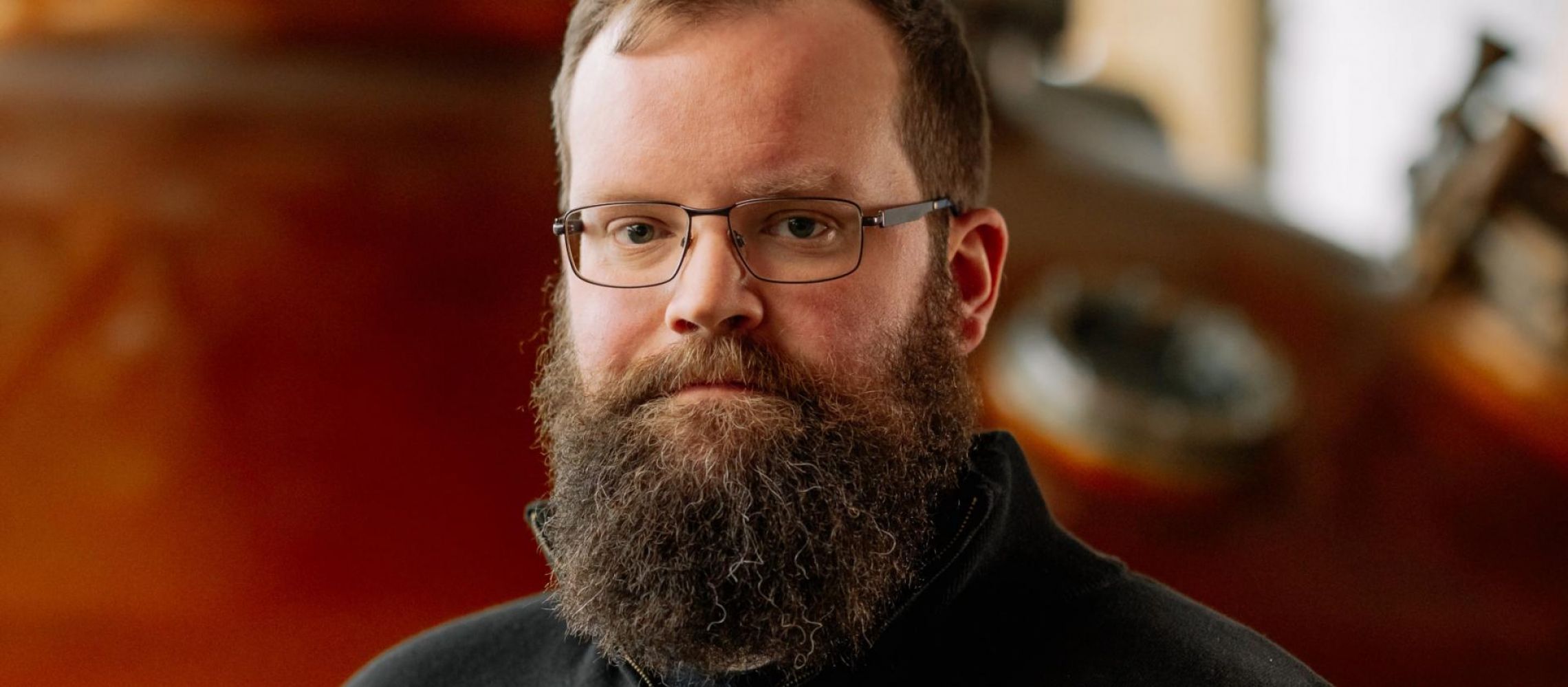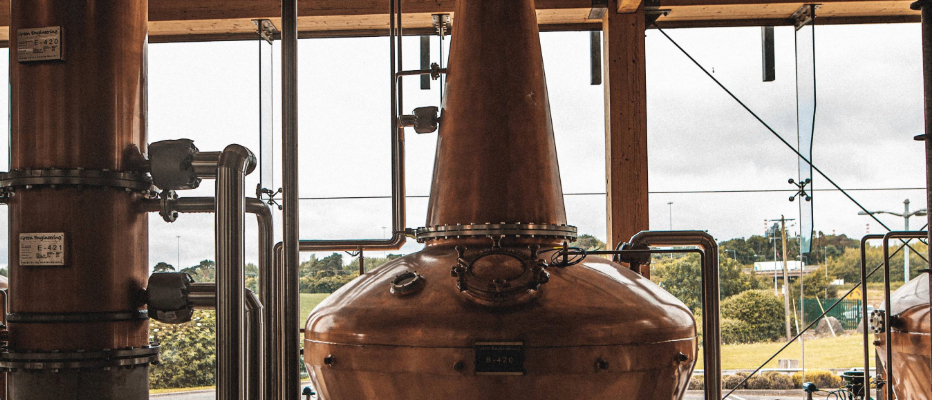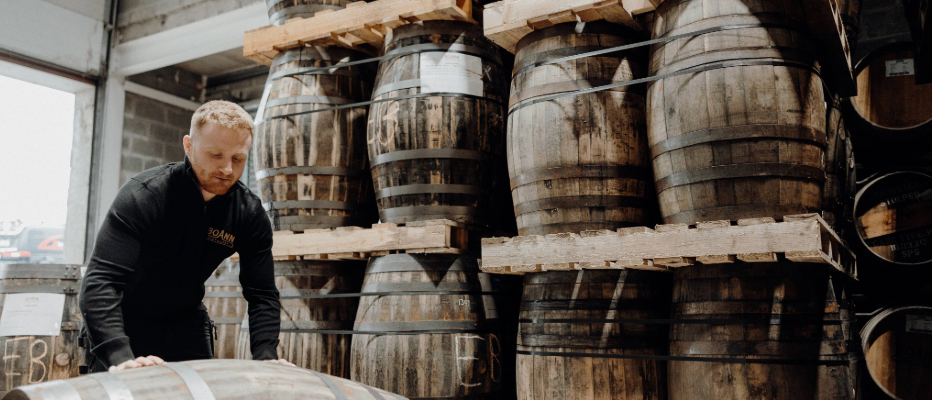Submission Deadline
28 February 2026
Judging
Date
24 & 25 March 2026
Winners Announcement
22 April 2026
28 February 2026
24 & 25 March 2026
22 April 2026

From falling in love with homebrewing and craft beer in his hometown, Bend, in Oregon, to becoming the head distiller at Boann Distillery, known for manufacturing single malt and pot still whiskies in Ireland, Alex Witt has had a very fascinating journey. In an interview with the London Spirits Competition, Alex Witt tells us about his role in the family-owned distillery, where he is responsible for everything from the grain to the cask.
I used to live in Bend, Oregon, at a time when the city had the highest number of breweries per capita in the US. And that’s what led me to craft beer and homebrew. Realising how much I truly enjoyed doing it, I thought, “Why not do this as a profession?” At that time, I met my to-be wife, who told me about a world-class brewing and distilling course at Heriot-Watt in Edinburgh, which I completed with honours. While studying I worked at Stewart Brewing and the Glasgow Distillery so I was able to gain a great deal of experience. Following my graduation, I joined Boann Distillery as an assistant distiller and was then promoted to Head Distiller just last year.

Image Title: Boann Distillery Interior
Off the top of my head, I would say good observational skills. People working in distilleries know that there are a lot of things happening during a normal production shift. You have to constantly keep an eye on the flow rates of the stills and wort, the temperature of the runoff, the speed of the pumps and the pressure of the cooling tower delivery pump. If any one of them goes wrong, it can affect the spirits and make your day a lot more difficult than it needs to be.
I believe distillers can share detailed and intricate information about the product with interested buyers. Details that brand ambassadors and sales managers may not know about. I personally love answering questions from people who are genuinely passionate about whisky and it’s conversations like these that build connections.
Also read: The Best Spirits of 2024: A Guide to Award-Winning Whiskies, Bourbons, and More
I personally feel that filling casks is the hardest part of my job because it is such a monotonous process. Besides, I have to keep the filling room door open for fire safety regulations, so it can get really sluggish on days when the weather is cold.

Image Title: Barrels in Boann Distillery
Rising costs are certainly a major issue in the spirits industry. Almost everything that you need in the distillery has become expensive in the last year, except for gas and raw materials. The prices for barrels have particularly skyrocketed, with one American standard barrel costing three times more than it used to a couple of years ago. Moreover, Ireland isn't known for its expansive distribution network so it takes some extra time for a lot of highly specific parts and machinery to be delivered to the distillery.
Firstly, I would let them know that we are a local, family-run distillery that focuses on quality and tradition. Then I go on to explain to them how we use old casks that give our whisky more character, with some casks being over 100 years old! The thing with old sherry casks is that most of their tannins are removed during the maturation of the sherry. So when we mature our spirit in those casks, we are able to achieve a much softer, sweeter whiskey.
Also read: A Look at the UK’s Leading Spirits Distributors
[[relatedPurchasesItems-63]]
As we use yeast with the standard MG+, I allow the fermentation to reach the maximum recommended temperature of 38 °C to maximise ester production. But that is not it; I think our copper stills also contribute to the complexity of the final spirit. Our stills are equipped with patented nanotechnology from the Italian company Green Engineering. This nanotechnology creates a rough surface on the inside, increasing the surface area of the still by six times. This increased surface area makes the spirits react more with copper, allowing for effective removal of sulphur compounds from the spirit. It is the still's ability to remove more sulphur that gives the spirit more fruity and complex notes.
We take different steps to ensure that we reduce our carbon emissions as much as possible so that we can be a sustainable brand. For instance, we have our own warehouse capable of holding roughly 30,000 casks, which has allowed us to cut down on transportation. Otherwise, we’d carry the casks to off-site maturation warehouses. We also put solar panels on the roof of the warehouse to reduce our needs from the grid. As for our waste, we send it to an anaerobic digester in Northern Ireland.
Speaking of what is up and coming in the Irish whisky industry, in particular, we are looking forward to being able to use 30% of the adjunct grains in the mashbill, which is six times more than the capacity that is allowed now. Given that more smaller distilleries around Ireland are using pot stills, many are waiting for the Department of Agriculture, Food and Marine to amend the technical file. Once distilleries are allowed to use the increased quantity of adjunct grains, it will allow us to make more variations. That is probably why the trend is also beginning to take off in Scotland.
Header Image by Alex Witt
Related Links
How Mackmyra Whisky collaborated with Microsoft to create the world's first AI-generated whisky
Colin Spoelman on why distillers are the driving force behind the whisky market
Show your spirits where it matters. Get your products tasted by top bartenders, buyers and experts at the London Competitions — enter now.